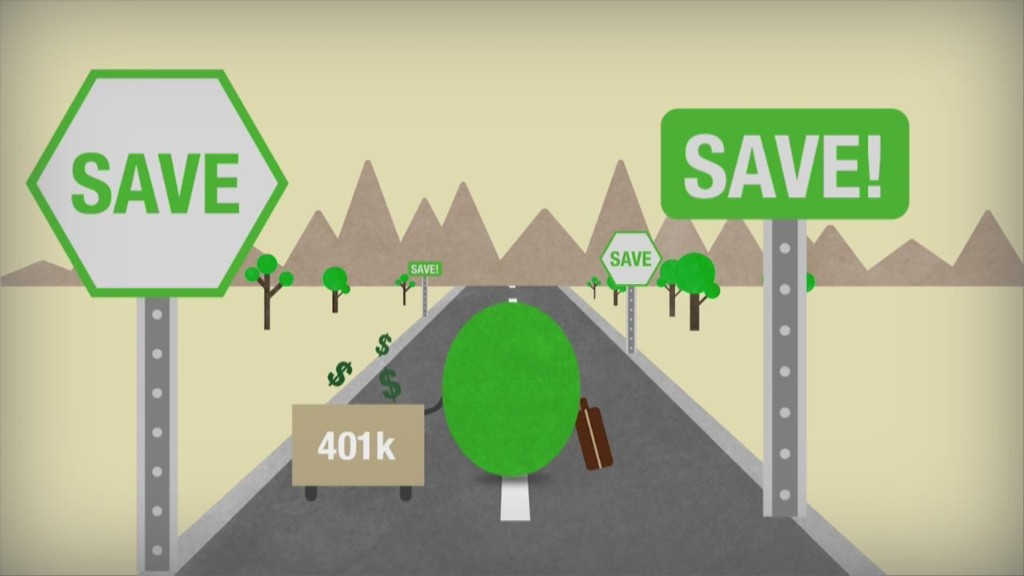
Chris Reining isn't your average retiree. He said goodbye to his working years at 37, and is now financially independent, living his life on his own terms.
Growing up in a middle-class family in Illinois, Reining says he did well in school, earned scholarships, and attended the school that paid him most. Unlike many other young people, he graduated with only $4,500 debt, which he quickly dispatched once he started working.
Eventually he found a well-paying job working in cyber-security, took out a mortgage and bought a condo, and financed a BMW.
But then he started to wonder: is this all there is?
"I finally said, 'I can't do this for 40 years,'" recalls Reining.
In his late 20s, Reining started searching for alternatives. He read the book, "Your Money or Your Life," by Joe Dominguez and Vicki Robin. "It helped me realize there's a way to arrange your life so you don't have to sit in this cubicle for 40 years and the idea of becoming financially independent became real."
By 35 he felt he had enough to live the rest of his life on his savings and investments without having to work again. It took two more years of showing up at the cubicle for him to be sure. Then, at 37, he finally walked away.
People who have reached financial independence can make it look easy.
But Reining is blunt about the prospects of making it to what he and others in the early retirement community call "financial independence, retire early" or FIRE.
"It's not possible for everyone," he says. "If you're tapped out by your expenses, it isn't realistic."
Also, he says, getting to FIRE isn't a sometimes thing.
"It takes commitment," he said. "The people who are most successful at it have compelling reasons for why they want it. The people who aren't going to get there, even though by the numbers they could, are the ones who don't have a compelling enough reason to make the hard decisions."
Related: How to retire early? Make the right moves for your age
Retired for the past two years, Reining spends his time writing about financial independence on his website.
"It does take a lot of small daily habits that you need to practice, day after day," Reining says.
Here are his strategies for how to earn more, save more and invest better en route to financial independence.
1. Save more
You've heard it all before about cutting back on dinners out and lattes.
But even with common sense rules about spending, many people succumb to lifestyle inflation, says Reining.
"The more money you make, the more money you spend, and you'll save nothing," he says. Unless you establish a lifestyle level you want to maintain and remain there.
"Where people get into trouble with saving is that they think they have to use reusable toilet paper and eat broth," says Reining. "Be real. Basically, you'll never spend zero dollars. Find a level of living that you're comfortable with then work on earning more without increasing your expenses."
2. Earn more
Your actual job is only part of your work. In order to earn the kind of money where you can live on only half or less of your salary (so you can sock the rest away) you need to focus on your career.
"If you don't work on your career," says Reining, "you're leaving money on the table."
This career boosting work can include earning advanced degrees or certifications that will qualify you for higher paying positions, raising your hand at every opportunity for a promotion or finding mentors.
"It is important to understand your weak areas," says Reining. "I found mentors, someone a few years ahead of me, who could be outside eyes and ears and help me see my options."
His mentors helped him be strategic in his career, which led to a more lucrative job doing consulting.
Side hustles, while readily available and hip right now, can be attractive for extra cash. But Reining suggests caution.
"You have to think about the time spent and the money earned," he says. "Is it better to spend time teaching yoga or walking a dog for $25 an hour or is that time better spent studying or networking so that you can get a $10,000 or $20,000 raise?"
And in the pursuit of a hot hustle, people often overlook the costs: "I love doing yoga, but I'm not going to spend $4,000 to get a certification to teach it."
3. Invest more
Many people already have one of the most powerful mechanisms for investment built right into their job: their employer sponsored 401(k).
"Contributing at the level where you get the employer match is a must, otherwise your walking away from free money," says Reining. "But to get the biggest benefit, you'll need to contribute the maximum."
In 2018 the maximum contribution increased to $18,500, up from the $18,000 allowed in 2017. If you qualify, you may also be able to contribute to a Roth IRA, a retirement account for after-tax contributions up to $5,500. Both earnings on the account and withdrawals after age 59½ are tax-free.
Your investments don't have to be super complicated, they just need to grow. Reining's entire net worth is a 401(k), a taxable account, a condo and a checking account.
"I like to keep it simple," says Reining. "I have my 401(k) for when I'm in my 60's. It's just sitting there compounding for the next 20-some years. The rest of my money went into a taxable investment account."
Are you working toward financial independence and hoping to retire early? Have you already achieved your goal? Tell us about it and you could be featured in an upcoming story on CNN.
